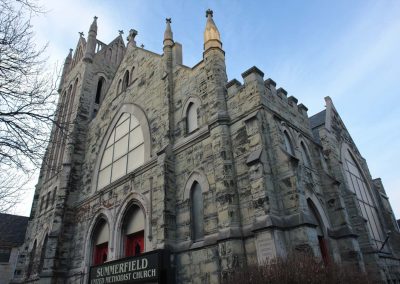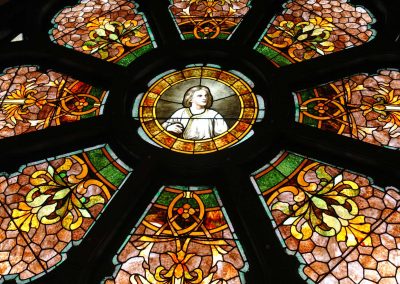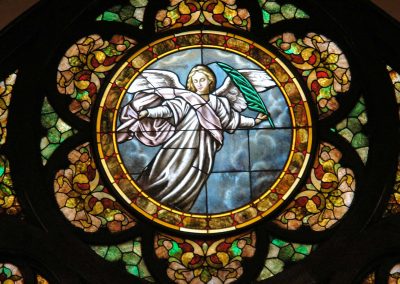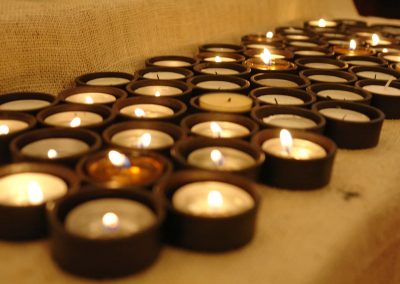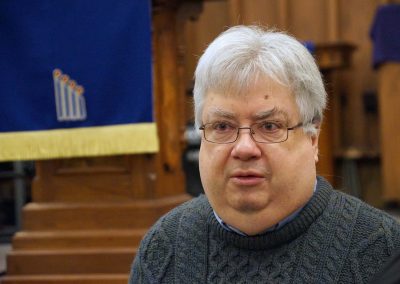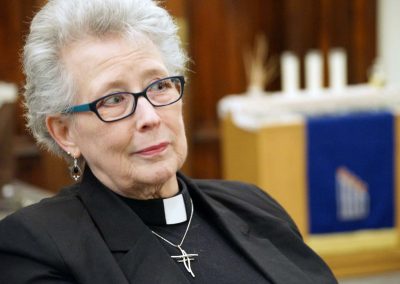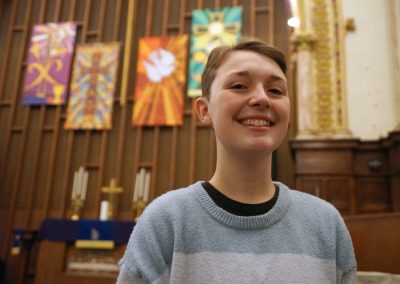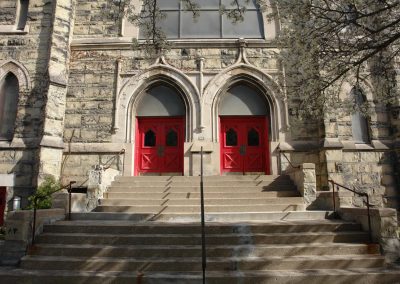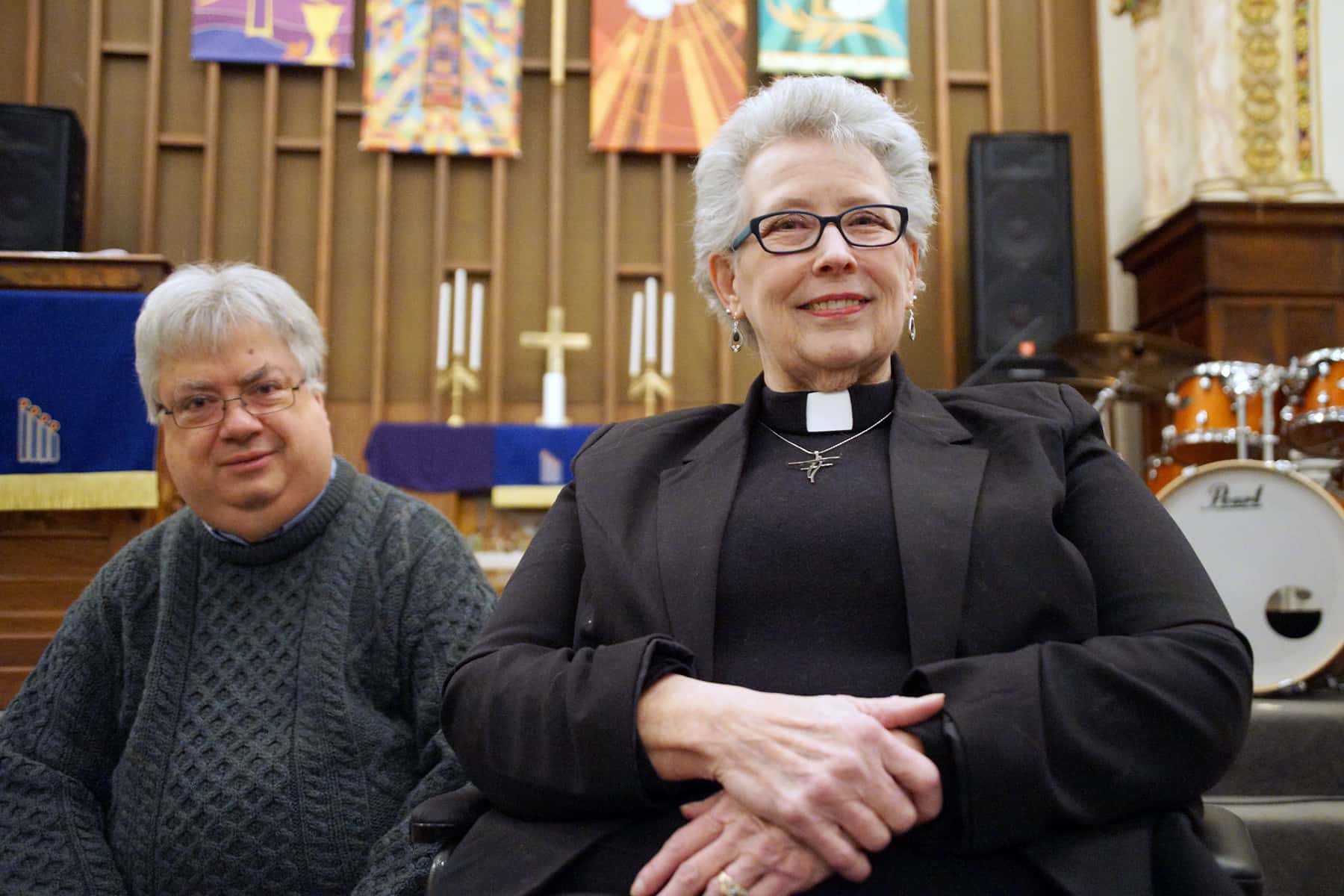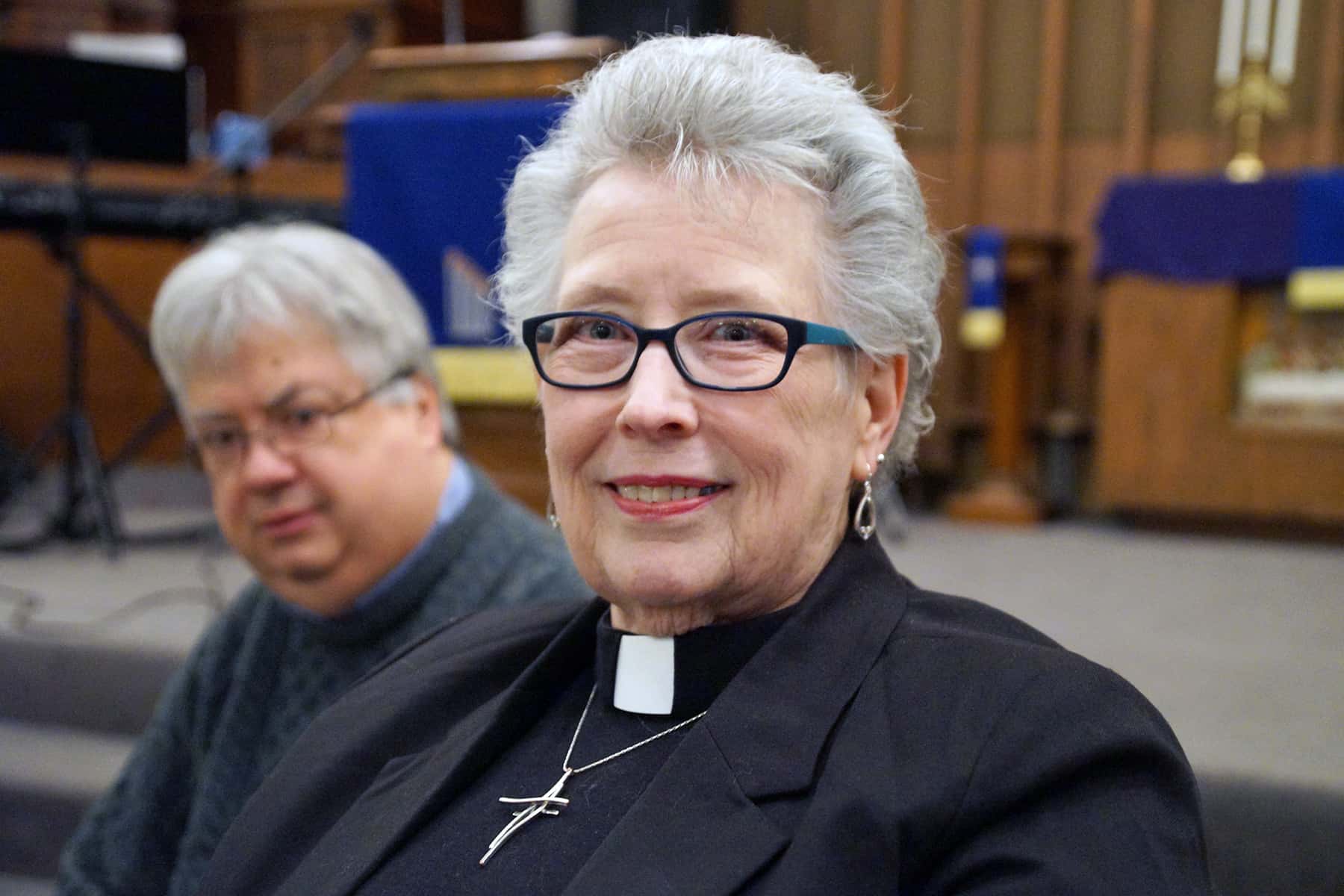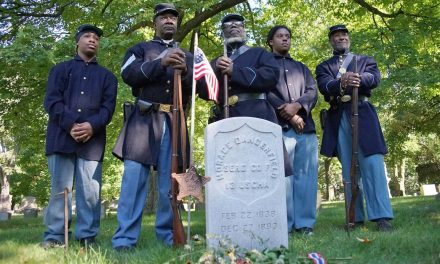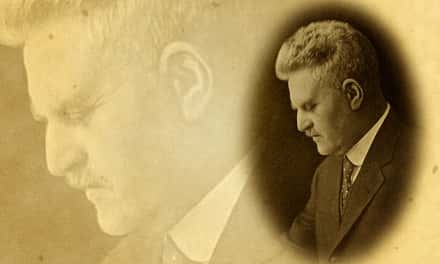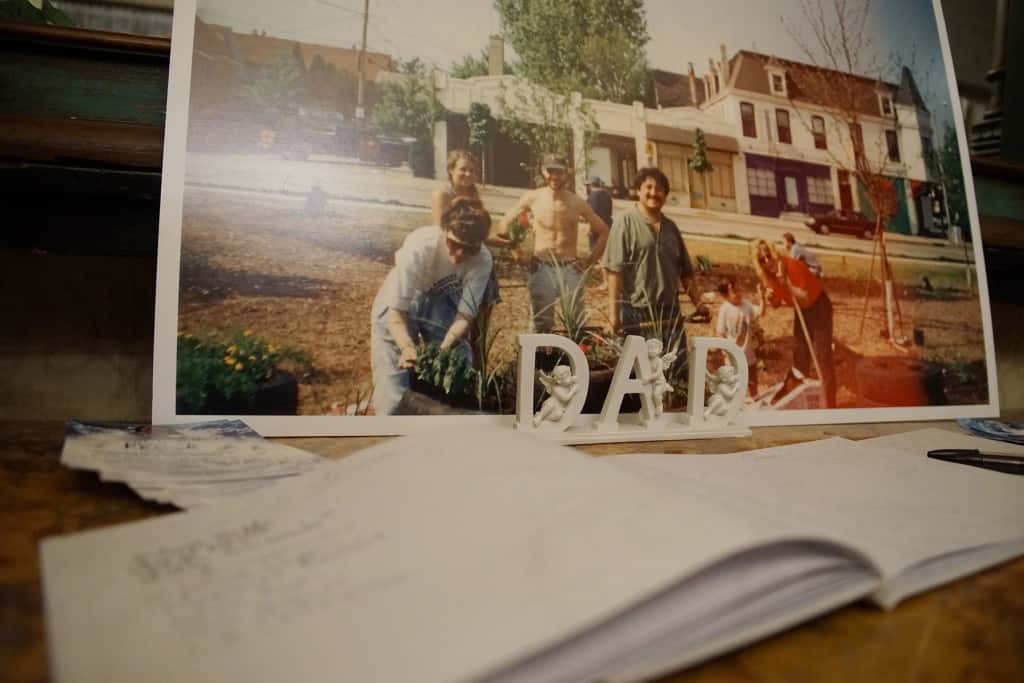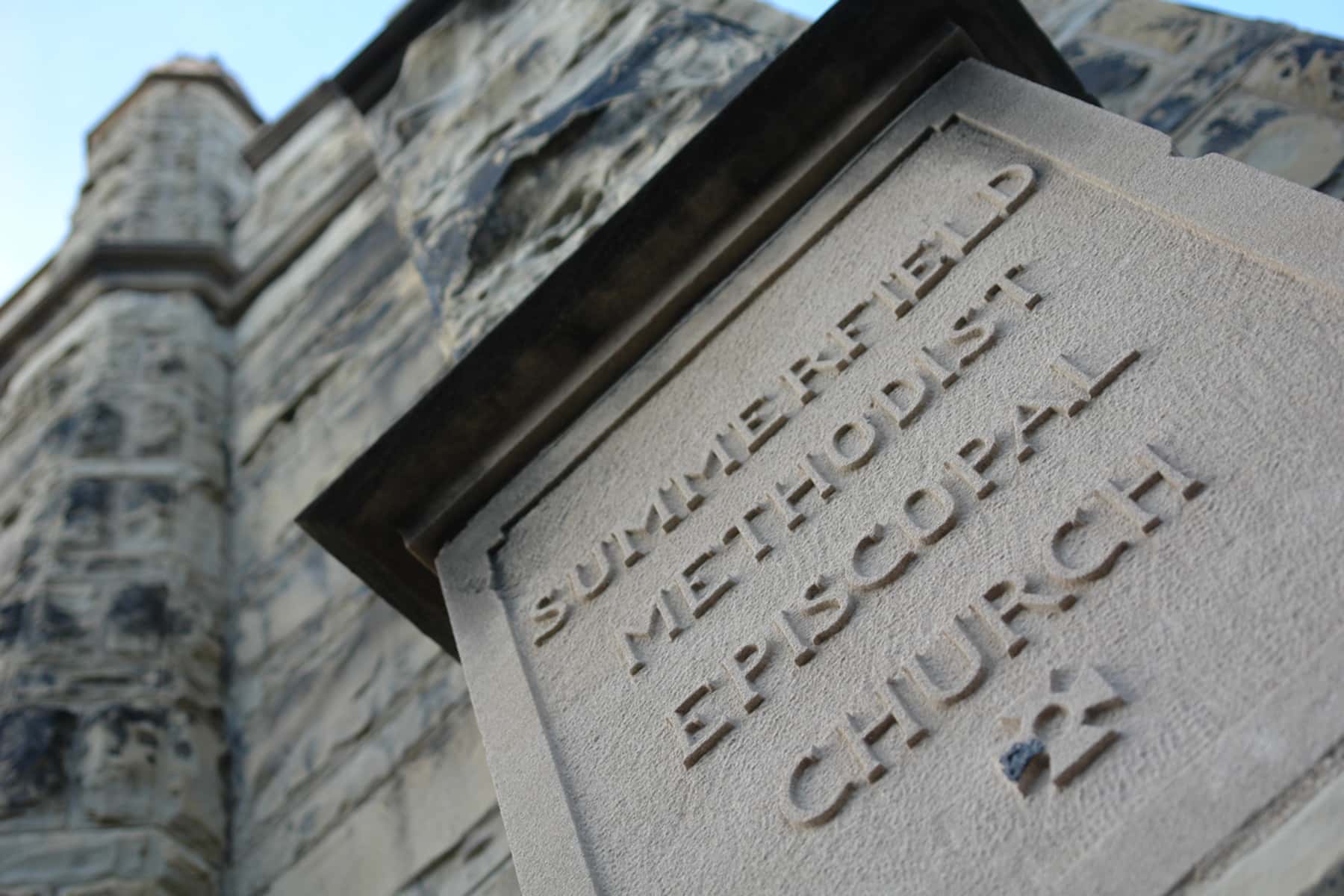
Leadership of the United Methodist Church (UMC) announced a plan on January 3 to split the denomination, as a result of what it called “fundamental differences” over doctrine related to same-sex marriage.
With at least 12 million members, the UMC is the largest denomination within the wider Methodist movement of 80 million people across the world, and the second largest Protestant denomination in the United States. The proposal would create a “traditionalist Methodist” denomination, with the existing 236 year old church moving to a more inclusive position and acceptance of homosexuality.
Under the plan the new denomination would be given $25 million, and local churches would be allowed to select which of the two affiliations they wanted to align with. Those churches that decide to leave would be able to keep their assets.
In the Yankee Hill area of downtown Milwaukee, the congregation of what is now the Summerfield United Methodist Church formed in 1852. Over the past 168 years, the church has changed in a reflection of the demographic landscape of its supporting community. Sadly, the issue of a split is nothing new in the church’s experience.
“This is not the first time at the rodeo for us. We will have to weather the storm, and we will have to work to remain united as much as we possibly can,” said Rev. Lynne Hines-Levy, Pastor of Summerfield UMC. “I pray that we can stay and work as one church, in whatever form that takes. This has been a controversy for quite a long time, but we’re hoping there’s no separation.”
Rev. Hines-Levy said that if there was a separation, then Summerfield would likely follow the side of the progressive church, because all people should be welcomed into the church.
Summerfield is known as a reconciling and accepting church, going back to its early formation. In 1854, members of the Summerfield congregation joined with the abolitionist Sherman Booth and broke into the Milwaukee jail to free escaped slave Joshua Glover.
“I’ve been with Summerfield for 13 years now, since I left the active ministry. And this is the only church I’ve really been to where everybody was truly welcomed and accepted for who and what they are. We’re all sinners in need of the grace that God gives. So, we shouldn’t be judging people just because we think their sin is worse than our own, or because we have this corrupted idea of what sin really is. And so here, we’ve been able to make a church that’s truly an umbrella that covers everybody,” said Pastor Fred Surrett. “Some of the people who I love dearly feel that they can’t show who they really are as a person, because other people will try to put them down.”
In the decades since the late 1960s and early 1970s, Methodists began to actively question what God calls each person to be in the church. The majority of UMC churches in Wisconsin have come to understand that God calls people to be inclusive and loving to everyone, and accept that God has created us differently.
Pastor Surrett admitted that a split would be difficult, and a hard decision because many people felt so strongly about the issue. But ultimately, it would be a choice of being faithful to the church, and being true to personal beliefs – not being hypocritical about what it means to be a Christian in the Methodist denomination.
Danielle Del Conte, a young member of the Summerfield congregation and LGBT community leader, was originally surprised to hear about the church slit proposal. She said that there were plenty of other people in the church that have been excluded in similar ways, and splitting the church had not been offered before as a solution.
“But I guess the Methodist leadership have decided that if we can’t come to an agreement, it would be better to go our separate ways,” said Del Conte, “I think I agree with that, to a certain extent, as I do want at some point to be ordained. So obviously, being part of a church that would be accepting of me being ordinated is a good thing. But this is the church I grew up in, and so it does make me sad that it’s going to be different. Some people that I grew up with are probably not going to be part of the same church that I’m now a part of.”
A vote on the plan is expected to take place in May 2020 during the Church’s annual General Conference, when church leaders and representatives from around the world will gather. Once the new traditionalist denomination has separated, the existing United Methodist Church would then be able to modify the current “Book of Discipline” and repeal the ban on same-sex marriages and ordained LGBTQ clergy.
The LGBTQ issue has been a long-standing concern for churches around the world, with religious opinions on both sides. The Holy Scriptures tell the faith community to “love our neighbors” without any qualifiers, yet politics continues to play a role in how doctrine is interpreted.
Since Methodism was founded in the United States in 1784, it has experienced a number of divisions and mergers like many other Protestant denominations. In 1830, the Methodist Protestant Church split from the Methodist Episcopal Church over the issue of laity having a voice and vote in the administration of the church. In 1844, the General Conference of the Methodist Episcopal Church split into two conferences because of tensions over slavery. Those two general conferences remained separate until 1939, when they merged with the Methodist Protestant Church and created The Methodist Church.
In 1968, the United Methodist Church was created when the Evangelical United Brethren Church and The Methodist Church merged. The UMC has been exploring a possible merger with three historically African-American Methodist denominations since 1985: the African Methodist Episcopal Church (AME), the African Methodist Episcopal Zion Church, and the Christian Methodist Episcopal Church.
The AME was the first independent Protestant denomination founded by black people. The AME Church was created and organized by descended from enslaved Africans, as a response to being officially discriminated against by white congregants in the Methodist church. The church was not founded in Africa, nor has it been exclusive to people of African descent.
Milwaukee native and civil rights leader Ezekiel Gillespie founded the first African American church in Wisconsin. St. Mark African Methodist Episcopal (AME) Church held its inaugural service on January 8, 1869 in a former Marshall Field’s department store building.
“As a pastor, I am not allowed to perform a gay marriage, which hurts my heart to not be able to marry anyone who is committed to their partner. And until it is legalized by our General Conference, that remains painful to me,” added Rev. Hines-Levy. “I have to follow those rules, because if I don’t I will lose my license. I’m praying that at the General Conference they do change the rule instead of splitting.”
- Laura Wozniak: On being gay and missing my United Methodist family
- Construction Sunday: Milwaukee’s church renaissance and the process of renovation at Summerfield
- A Schism of Faith: Methodist Church plans split into opposition and LGBTQ-inclusion branches
- Empty Hearts, Closed Minds, Shut Doors: United Methodists face church split over LGBTQ ban
- A Church Disunited: Wesleyan movement faces schism after public vote on political view of faith
- A Hand Up, Not a Hand Out: 100 years of Milwaukee’s Goodwill began in the basement of Summerfield
- William H. Metcalf: Iconic pictures of 1870s Japan were taken by an amateur Milwaukee photographer
Lee Matz
Our mission of transformative journalism means that we are editorially independent. Our staff determines what is important news to report on, and in what voice to speak on issues. No one influences our opinion, and no one edits our editors. We are free from commercial bias and are not influenced by corporate interests, political affiliations, or a public preferences that rewards clicks with revenue.
Your Support Matters – Donate Now
As an influential publication that provides Milwaukee with quality journalism, we depend on public support to fulfill our purpose. Our award-winning photojournalism, columns, interviews, and features have helped to achieve a range of positive social impact that enriches our community. Please join our effort by entrusting us with your contribution.

